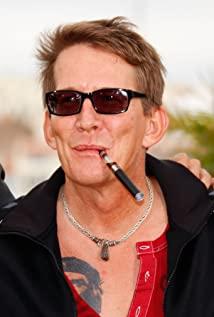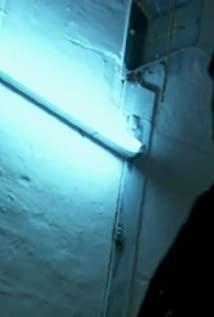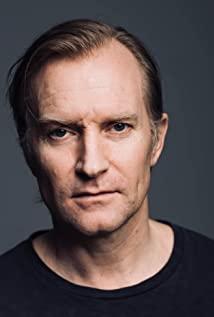The purpose of such a claim is to show that for such a film that is full of secrets and mysteries, photography is obviously in a crucial position. Chaotic family and hidden secrets, this kind of kernel and DV are simply a match made in heaven. In the film, we can see the shaking and shaking caused by various handheld cameras. On the one hand, it creates the feeling that the whole process of the family gathering is being recorded, and on the other hand, it also implies the lurking in the plot. All kinds of restlessness and restlessness. Normal viewing angles are simply rare in the film, replaced by all kinds of looking up, down and peeking. This seemingly random and abnormal perspective creates the effect of surveillance and voyeurism, and often highlights the subtle changes in the characters' hearts. Although the quality of the whole film is rough and even the color tone cannot be unified, we may not be able to call it a "flaw", because these elements are just a natural arrangement in my opinion, which is incomparably natural with rough editing and actors. The performances together formed a very special style, so that the whole film reached a high degree of unity in content and form. It can be said that the use of this technique is not only a requirement for shooting equipment, but also a requirement for the film itself.
Okay, so nonsense, let's put aside those terms that are becoming fascinating. Father is about to celebrate his 60th birthday, and a crowd of people are waiting to come to celebrate his birthday. The three children arrived first (the eldest is dead), the second is a son, taciturn; the third is a daughter, with a cheerful personality; the fourth is also a son, violent and rude. The three went on their own lines and were complicated; after some foreplay, a huge family banquet arrived as scheduled. The eldest son, Christine, knocked the glass and gave a speech first; however, no one expected that the seemingly polite and unspoken Christine untimely revealed a shocking secret during the toast: his sister and father a few months ago. The death of his eldest daughter was precisely because he could not bear the rape of his father. As a result, the atmosphere of the film changes abruptly, from joy to embarrassment and tension to the outbreak of conflict. The eldest son, Christine, was lonely, and he was about to be considered mentally ill, but the situation was reversed in a letter found by the third child.
To be sure, conceptually speaking, the cruelty of the stern school, the beasts under his attire, the patriarchy that was still majestic not long ago, has now crashed to the ground, leaving behind a mess of faith and value. The pain left over from the Second World War, the conservative tendencies and patriarchal style of the Nordic countries towards hierarchy and majesty are fully revealed in the film. However, if you look further, these backgrounds certainly have profound meanings, but they are not the actual focus of the film; the focus is actually very small, and it lies in the words my mother said to Christine at the family dinner: "I An apology is not a shame." This is a sentence that is easier said than done. Obviously, neither Christine nor his father would easily apologize to each other or the entire family, because the former’s apology means that one’s life and truth are lost, and the latter’s confession will directly lead to the loss of the evening festival, leading to the fame and reputation of the first life. Authority is completely destroyed. In this case, they must stick to it, although the reasons are different. After being patient with demeanor, Christine's father and mother couldn't bear it, and finally each offered their own assassins. They called Christine a lunatic and tended to be schizophrenic as a child.
This is undoubtedly a ruthless move. The word "madman" not only destroys all the truth, but also transfers the reputation punishment that he is about to get to his own son. What's more, biological parents even regard their son as an ordinary person who should have their own views. All rights have also been destroyed. A madman can never prove his innocence. If you say that you are a madman, you will become a madman; you cannot say that you are not a madman, because a madman says that. Any seemingly absurd excuse can cause illness, and once the excuse is placed on a lunatic, the excuse can become a "reason", and the more authoritative, the more the number of people, the less Christine can prove himself. Crazy. As a result, Christine reluctantly fell into an endless loop that didn't exist at all: To prove that his sister's death was related to his father's rape, he had to prove that his words were credible; if he wanted to prove that he was credible, he had to prove that he was not a lunatic; The only feasible way to prove that he is not a lunatic is to prove that the death of the sister is indeed related to the rape of the father. Fortunately, Christine was by no means alone. His friends gave him great psychological comfort and spiritual support from beginning to end, and helped Christine very accidentally at a critical juncture, eventually breaking the cycle of death. , So that the problem can be solved easily.
There are tens of thousands of struggles between truth and authority in the world, but none of them can be easily resolved. From a small home to a large country, justice and truth always seem to be on the verge of dying. Reason, desire, and passion do not always coexist peacefully in a person’s soul, and people can always act for their own interests. Some things that go against common sense and are called "persistence." People are struggling and defending, doing everything they can, trying to draw a clear line with the righteous madman at the last breath; the middle boundary, after thinking about it, is nothing more than a "face", and the one under the skin. Pile of rubbish that is unwilling to show others. Maybe we can describe my father as a balloon. It was originally full of air, but it was still swollen no matter what the taste. As the skin leaked everywhere, people began to smell the smell, and the sphere began to shrink; until the end, The smelly smell around the balloon, the balloon itself is no longer what it used to be, a shriveled, wrinkled face finally appeared in front of people. From this point of view, "Family Banquet" may be a fable. The hidden struggle and hardships and hardships that prevail everywhere, and the boring but fierce maintenance and the simple and slanderous pursuit hidden in the center. Confrontation can be said to be profound. At the end of the film, the undead of the sister was finally relieved and hugged Christine tightly. The father, as the mother said, finally admitted his shame "not as shame", and the property, glory, honor, etc. were also on the dinner table. The rustling whispers are completely corroded. Christine looked at his father, frowned, and seemed to have begun to reflect on the consequences of his actions for his biological father.
Poor, not pitiful? Forgive, not forgive? Christine himself was plunged into deep doubts. Only the gaze of Christine, who turned to his father's back, could explain everything, but this gaze gradually disappeared as his father went away.
Having said that, let us go back and talk about the declaration. Some people say that the influence of "Dougma 95" has disappeared at the beginning of this century. Is this really true? I don’t think so. Perhaps the "Dougma 95" as an organization has long since disappeared. There is no doubt about this, but its influence has never been and will never disappear. In fact, it has been deeply integrated into the history of film, embedding all the film schools that value story and performance. One day people finally discovered that "Dougma 95" was not the babble of Lars von Trier and Thomas Winterberg. It flows in everyone’s blood vessels and is rooted in everyone’s heart. Waiting for the throbbing every minute and every second.
View more about The Celebration reviews











